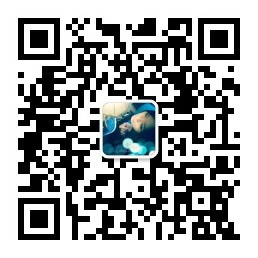本文话题:什么是科学,什么是科学,知识分子,健康养生

我的爸爸是77年恢复高考后的老中专生,后来又修了大专的课程,经济师,国家公务员,在他们一辈人里应当算是高学历的知识分子.爸爸也一直以知识分子自居,向来对封建迷信一套十分反感,年轻的时候还有戏耍算命先生的"壮举".他时常挂在嘴边一句话"我什么都不迷信,我就是迷信科学".于是现在十分注重健康养生的他,每每看见电视里的专家推荐吃什么、怎么吃,就严格的照做。于是家里往往吃几个月菠菜汤或者几个月的炒胡萝卜。
这并不奇怪,因为在我爸爸成长的那个年代,“知识”掌握在具有公权力的人的手里,这些人如同中世纪的僧侣,虽然身披“科学”的外衣。
现在,国家进步了很多,但我们的教育,仍然笼罩着“公权力”的影子,因此对“科学”二字往往语焉不详。
这毫不奇怪,看看满世界的“脑白金”、“黄金搭档”、“珍奥核酸”,乃至挖通长江和雅鲁藏布江的“通天河”,你就会明白,受过了教育的中国人,并不太懂得“科学”的涵义。
甚至,在大学的课堂上,当老先生在讲解大众天文学,下面的同学们仍然对各种灵异的UFO更感兴趣。
我们的教科书的第一章,往往是这样开头的:“xx学,是研究xx产生、发展、变化,以及探讨其对人们生产生活影响的科学”。而到底什么是科学,编著者们往往觉得这是1个不需要解释的概念。
我现在手里面有一本Eldon D.Enger和Frederick C.Ross编著的Concepts in Biology(生物学原理)第十版,科学出版社引进McGraw-Hill公司的影印版。它的第一部分导言叫做“什么是生物学”。此导言花了十页篇幅来讲Science and the Scientific Method。现在,我尝试用尽量短的文字来转述一下这些内容。
什么是科学
科学方法流程图改编自Concepts in Biology
1、科学是获取知识的过程,而非知识本身。Science is actually a process used to solve problems or develop an understanding of natural events that involves testing possible answers.
2、这个过程又被称作科学方法,其涵义是通过组织1个经严格验证被认定可信的解决问题的方案来获取信息。The scientific method is a way of gaining information (facts) about the world by forming possible solutions to questions followed by rigorous testing to determine if the proposed solutions are valid.
3、当使用科学方法时,我们假设几个前提:
(1)我们观察的事物都是有特征的,there are specific causes for events observed in the natural world,
(2)这些特征是可以识别的,that the causes can be identified,
(3)自然界当中发生的事件可以通过被普遍接受的方式描述出来,that there are general rules or patterns that can be used to describe what happens in nature,
(4)可以重复的事件可能含有共同的特征,that an event that occurs repeatedly probably has the same cause,
(5)1个人可以感知的,其他人也可以感知,that what one person perceives can be perceived by others, and
(6)基本自然法则不因时间空间改变。That the same fundamental rules of nature apply regardless of where and when they occur.
4、科学方法包含以下重要元素:严谨的观察、构建假说并验证之、对新信息新点子的开放性、自愿接受他人的经过验证的成果。
5、观察。限于我们的感官(嗅觉、视觉、听觉、味觉和触觉),或者我们感官的延伸(显微镜、录音机、X光、温度计等等)。
6、质疑和探究。过于复杂和广泛的提问可能无法得到解决,提问的“好坏”直接决定问题是否能够被解决。The formation of the questions is not as simple as it might seem because the way the questions are asked will determine how you go about answering them. A question that is too broad or too complex may be impossible to answer; therefore a great deal of effort is put into asking the question in the right way. In some situations ,this can be the most time-consuming part of the scien[wWw.nIUbB.nET]tific method; asking the right question is critical to how you look for answers.提出问题后需要做的是探究,即收集关于此命题的信息,参考别人做过的事,可以启发思路,节省时间,或者干脆避免浪费时间。
7、假说,假说是可以被验证的对特定问题的可能的答案。1个好的假说必须是逻辑严密的,能够包含现有的所有信息并对将来可能补充的信息开放。如果有多个选择,一定要选择最简单包含最少假设的那个假说。
8、验证假说。假说可以简单的通过收集其他来源的信息加以验证,也可以通过额外的观察加以验证,更多的时候需要通过设计1个实验来加以验证。实验通过再现1个事件使得科学家可以对假说加以验证。1个事件中往往有多个变量variable,变量越多,实验越难以进行。因此需要可控的实验controlled experiment。A controlled experiment allows scientists to construct a situation so that only one variable is present. Furthermore, the variable can be manipulated or changed.经典的可控实验分两组进行,一组称为控制组;另一组称为实验组。A typical controlled experiment includes two groups; one in which the variable is manipulated in a particular way(experimental group) and another in which there is no manipulation(control group).科学家们往往不会接受单个实验的结果,因为那有可能只是与实验变量无因果关系的随机事件。只有大量的重复实验皆表现出明显的因果关系,这个实验才可信。
9、理论与法则。理论是有关于用来解释事情为什么发生的基本概念的普遍接受的、合理的归纳。A theory is a widely accepted, plausible generalization about fundamental concepts in science that explain why things happen.科学法则是用来描述自然界中发生了什么的不变的、恒定的自然事实。A scientific law is a uniform or constant fact of nature that describes what happens in nature.从不同的特定的事件中发展出普遍的原则的方法称为归纳(inductive/inductive reasoning);其逆向过程称为推理(deductive/deductive reasoning)

关注我们微信公众号:mw748219